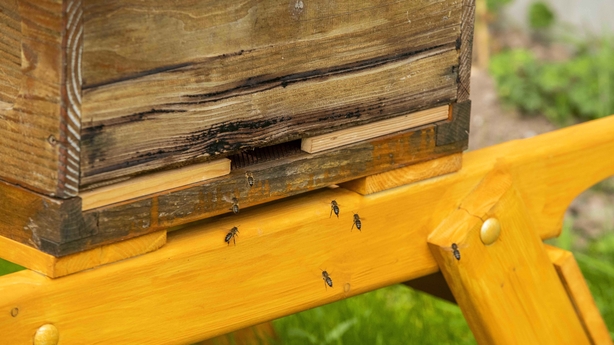Cork University Hospital has installed beehives to ease the fears of children who have suffered life-threatening reactions to bee and wasp stings.
Patients will soon be able to watch tens of thousands of honeybees from waiting rooms via a CCTV camera system installed at the entry point to the hives.
The €15,000 project, funded by CUH Charity, is three years in the making - and will also produce the hospital's own brand of 'CUHoney'.
The Wilton campus is the national centre for the treatment of children who have endured anaphaylaxis to bee and wasp stings.
Treatment for the life-threatening allergic reactions requires immunotherapy through intensive, long-term injections of venom doses which help the immune system build up a tolerance to the venom.
A paediatrics allergy consultant said the project is vital in reassuring patients, some of whom may have had a family connection with beekeeping, that they can continue to live their life with a reduced possibility of a life-threatening reaction to a sting.
"They need to know that allergies are everywhere but with this kind of treatment, they will have less anxiety in the future," Dr Juan Trujillo said.

CUH, which treats up to 20 patients with anaphylaxis every year, has introduced pollenating gardens and two hives, potentially accommodating 40,000 bees.
It had planted trees and wildflowers on the site ahead of the introduction of the hives.
The apiary will also boost biodiversity across the campus, while trying to reverse Ireland’s declining bee population.
Dr Anda Dumitrescu of the Department of Paediatrics at UCC is also a beekeeper and said the project will enable all children attending CUH as inpatients to learn about bees and their ecosystems at CUH’s school.
"Visits to the hives in CUH can be facilitated with the provision of protective clothing and will enhance their experience while in hospital and improve their quality of life while recovering," she said.

